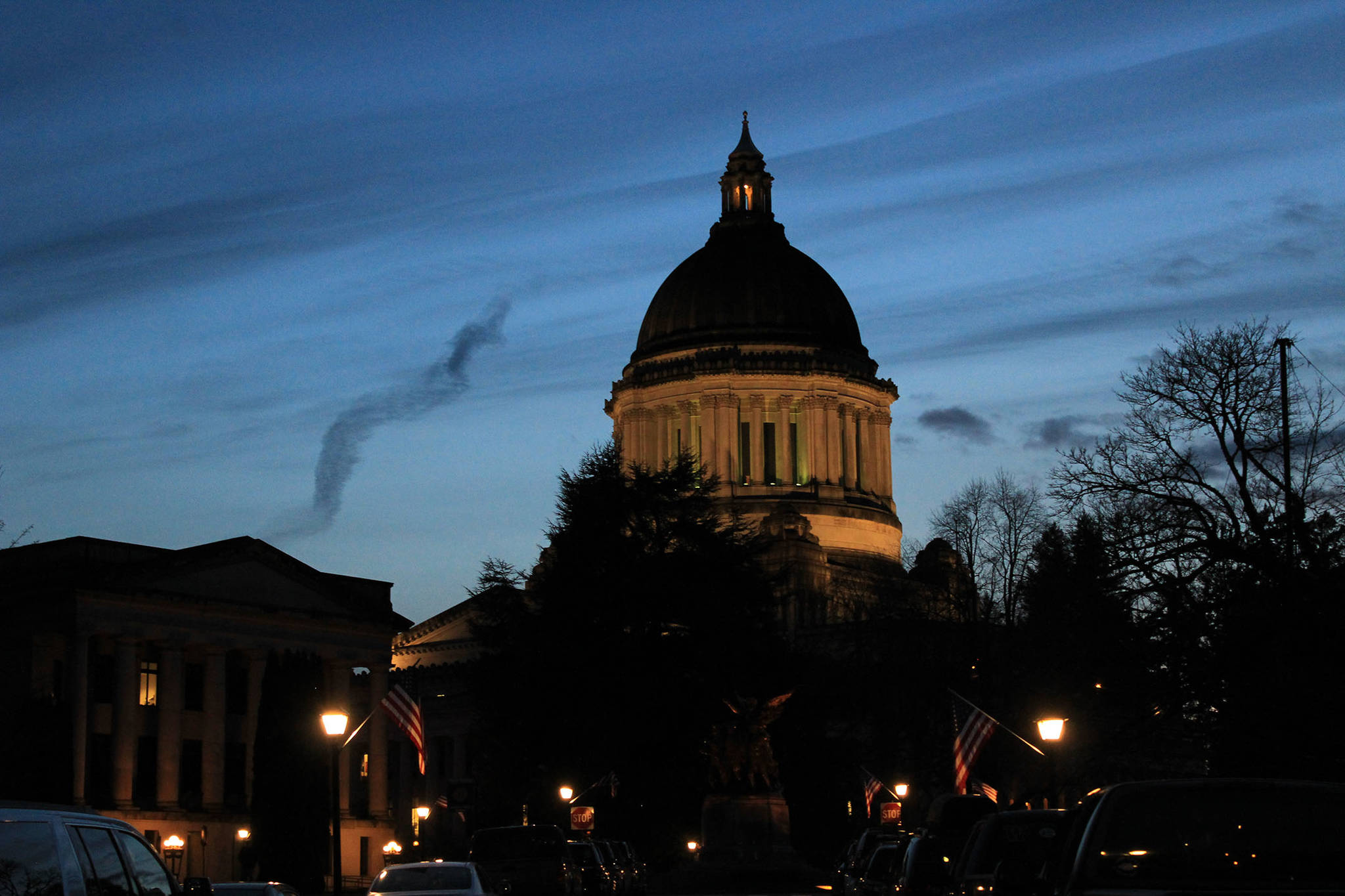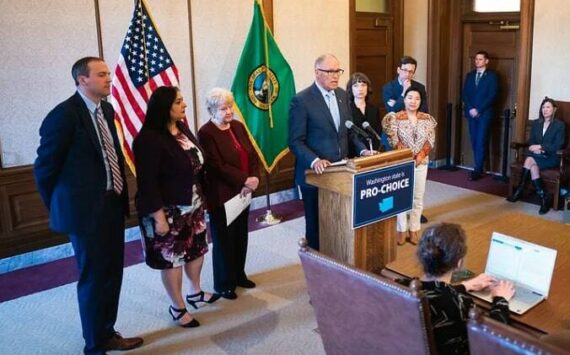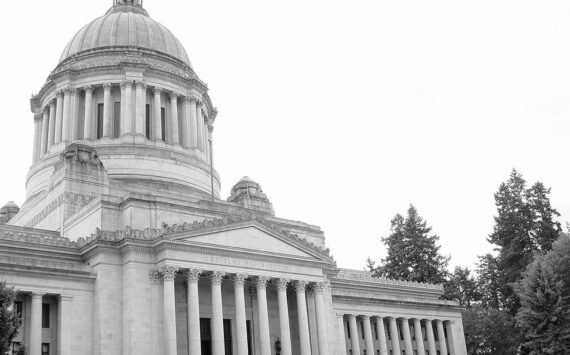Gov. Jay Inslee on Thursday put the brakes on state lawmakers’ rush to shield some of their records from the public.
Inslee vetoed a bill that would exempt lawmakers from the state’s Public Records Act and allow them to set up a separate system for deciding which records about them would be disclosed.
The governor announced the veto in a press release issued at 9 p.m.
He said he made the decision after Democratic lawmakers in the Senate and House asked him to veto the measure so they could have a do-over.
He also acknowledged hearing from thousands of residents from all corners of the state who wanted him to stop it.
And the announcement came after securing a pledge from the attorney for a coalition of news organizations to seek a pause in the group’s lawsuit aimed at forcing greater disclosure of lawmakers’ records. News organizations, including Sound Publishing, won the first round in January when a judge ruled that emails, texts and other documents generated by legislators are public records.
“Since this bill passed, my office and lawmakers have heard an unprecedented level of response from the public,” Inslee said in a statement. “Those messages were heard loudly and clearly. I now hope lawmakers, the media and other stakeholders will work together to resolve differences through a process the public can have faith in.”
As of Thursday afternoon, 18,850 people had emailed, phoned or called the governor’s office asking him to veto the bill which lawmakers introduced and passed in the span of 48 hours last week.
“We made a mistake by failing to go through a full public hearing process on this very important legislation. The hurried process has overshadowed the positive reforms in the bill,” wrote 16 Democratic senators.
“We think the only way to make this right is for you to veto the bill and for us to start again,” they wrote.
Those senators said they would convene a task force of lawmakers, open government advocates as well as representatives of the media and the Office of the Attorney General to come up with recommendations regarding the release of legislative records.
Thursday’s activity culminated a week of drama ignited when the Democratic and Republican leaders of the Senate introduced the bill exempting legislators from the public records law, which was enacted nearly a half-century ago to ensure those elected to govern do not do so in secret.
Senate Bill 6617 sought to make lawmakers’ calendars and correspondence with lobbyists and final reports of disciplinary proceedings public after July 1. But it also would have prevented release of sought-after documents such as email and text exchanges between lawmakers, and investigations of complaints of sexual harassment.
The bill arrived Feb. 21. Two days later, without a public hearing or much of a floor debate, it passed by margins of 41-7 in the Senate and 83-14 in the House.
Then came the backlash. People started phoning and emailing the governor’s office to express their dismay and urge Inslee to veto the bill.
At the same time, the state’s largest media outlets turned up the heat. A dozen daily newspapers across the state, including The Daily Herald, ran front-page editorials calling on Inslee to reject the bill and imploring readers to contact him as well.
Several lawmakers have been openly critical of the media’s coverage.
Sen. Sam Hunt, D-Olympia, one of the Legislature’s most senior members, wrote to a constituent that the coverage had failed to point out how the bill would have increased transparency by making a trove of records public that had not been available before.
And while the speed with which lawmakers approved it concerned him, it was not unprecedented, he wrote. The Legislature acted as quickly on several bills in special session in 2013 to help convince The Boeing Co. to build its new 777X plane in Washington, he pointed out.
“As a longtime supporter of open government and access to public records, I find it disturbing that the newspapers of the state are presenting such a one-sided view of the legislative public records bill,” he wrote, adding later he “will continue to defend that access even if the press creates jaundiced arguments in an attempt to bolster its position.”
The public records debate started heating up with the lawsuit filed last year by the coalition led by The Associated Press and including Sound Publishing, this publication’s parent company. Several of the daily newspapers that ran those front-page editorials are plaintiffs in the suit.
The lawsuit argues that lawmakers should be subject to the Public Records Act in the same way as the governor, the attorney general and elected members of city councils, county councils and school boards.
Lawmakers, who have been accustomed to not providing any documents, hired outside lawyers to make the case the law does not apply to the legislative branch.
In January, a Thurston County Superior Court judge ruled in favor of the news media. Lawmakers and lawyers of the four caucuses set about to draft the bill.
Once it came out, it cleared the two chambers in less than an hour, the lawmakers moving quickly, apparently to get around the court ruling and to make sure they would have a chance to override any veto.
Had they not acted when they did, the governor could have waited until after the session ends next Thursday, March 8, to issue a veto. At that point, lawmakers would have been gone and unlikely to return to try to override his action.
A version of this story was first published in the Everett Herald. Jerry Cornfield can be reached at 360-352-8623 or jcornfield@herald net.com. Follow him on Twitter at @dospueblos.








